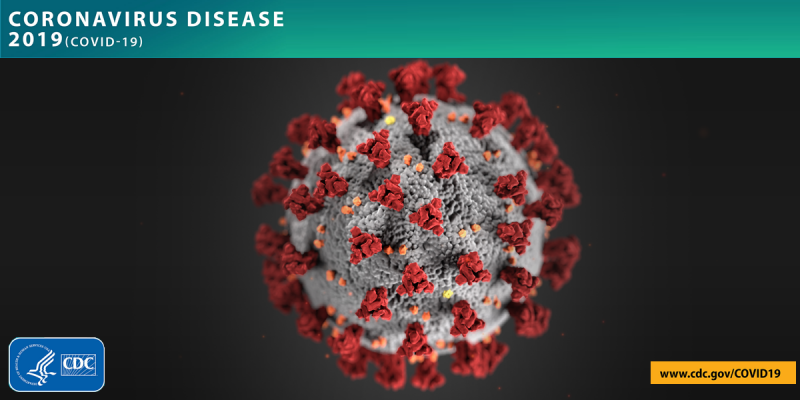Delaware reported its highest number of new cases of COVID-19 since January with 665 on Sept. 9, according to the Delaware Division of Public Health.
The seven-day average for the percentage of positives among total tests taken was 8.6 percent, an increase from 7.4 percent Aug. 31. In addition, 252 individuals are currently hospitalized due to COVID-19 in Delaware, an increase of 19 from the previous week. Thirty-eight of the hospitalized persons are critically ill, a decrease of 10 from the week before, officials said.
A total of 1,900 Delawareans have died due to complications from COVID-19. Twelve deaths were reported in the past week, six of which were from a review of vital statistics. Individuals in Delaware who have died from COVID-19 range in age from younger than 5 to 104 years old.
COVID-19 vaccinations
According to data from the Centers for Disease Control and Prevention, 76.8 percent of Delawareans ages 18 and older have received at least one dose of the vaccine. As of Sept. 10, a total of 1,133,779 administered doses of the COVID-19 vaccine have been reported to DelVAX, the state’s immunization information system. Among Delawareans 12 and older, 563,547 have received at least one dose of the COVID-19 vaccine, and 505,790 Delawareans are fully vaccinated. Delaware’s latest COVID-19 vaccination statistics can be found under the Vaccine Tracker dashboard at de.gov/healthycommunity.
COVID-19 case vaccination status report
The following report captures a weekly breakdown of vaccination status for cases, deaths, and hospitalizations, and highlights the significant percentage of cases and hospitalized individuals in Delaware who are unvaccinated, or only partially vaccinated. Vaccination continues to be the most important factor in reducing deaths and hospitalizations from COVID-19.
Breakthrough cases
To date, 505,790 Delawareans have been fully vaccinated. Among those, there have been 2,307 breakthrough cases of COVID-19, occurring in approximately five-tenths of 1 percent of vaccinated individuals. Fifty of the reported breakthrough cases identified since vaccinations began involved hospitalizations, and 25 individuals passed away, but that does not mean COVID-19 was the cause of death. Breakthrough cases continue to be extremely rare given the total number of people who are fully vaccinated, and the science is clear – the best way to prevent serious illness from COVID-19 is to get vaccinated.
A breakthrough case is defined as someone testing positive for COVID-19 after having been fully vaccinated for two weeks or more. This does not mean the infection actually occurred after vaccination.
Varient cases
Last week, 121 (72.9%) of the 166 test samples sequenced at the DPH Lab were positive for a variant strain, as were 27 additional specimens sequenced at an outside lab. Ninety-three percent of the 148 variant positive samples this week were identified as the Delta variant. The Delaware Public Health Laboratory has sequenced 4,275 specimens for COVID-19 variant strains to date.
DPH is carefully tracking the Mu variant, technically known as B.1.621, which is not currently on the CDC list as a variant of interest or concern. To date, Delaware has detected 18 cases of the Mu variant.
Virus mutation is common, officials said. Sequencing for variants is a complex process; it is not used for diagnosing COVID-19, but after a positive case of COVID-19 has been identified, for surveillance purposes or in identifying the presence of a variant strain in the community. Because these variants may spread more easily, it is even more important that unvaccinated individuals who are more susceptible to getting COVID-19 continue taking the necessary steps to avoid spreading the virus – wearing a mask, washing their hands, and being cautious when attending large gatherings.
Long-term care statistics
As of Sept. 9, there have been a total of 2,871 positive COVID-19 cases involving long-term care residents, and 834 residents of Delaware long-term care facilities have died from complications related to COVID-19.
DelVAX public access portal
Delawareans can now access their immunization record through the DelVAX Public Access Portal. Parents and legal guardians can print official immunization records for their child/children (ages 0 through 17 years), and adults (ages 18 years and over) can print an official immunization record for themselves. For information and link for the DelVAX Public Access Portal, go to dhss.delaware.gov/dhss/dph/ipp/portalflyer.pdf. DelVAX is the official record for a person’s vaccination data. Individuals who need assistance can call 1-800-282-8672, or email DelVAX@delaware.gov.
Beebe Healthcare pausing elective surgeries
Beebe Healthcare paused elective surgical procedures Sept. 14 requiring an overnight stay.
Beebe leadership made the decision out of an abundance of caution to continue providing safe, high-quality care to the influx of patients requiring hospitalization due to COVID-19 and unrelated serious medical issues.
The number of community members hospitalized as a result of COVID-19 infection has continued to rise, officials said, and more than 95 percent of hospitalized COVID-19 patients are either unvaccinated or partially vaccinated.
Beebe will continually monitor the situation and will resume elective surgeries requiring a hospital stay as the situation requires, officials said. Beebe is working closely with surgeons to ensure that patient care is prioritized as best as possible. Patients whose elective surgeries are paused will be contacted by their surgeon’s office.
Beebe strongly urges everyone to get vaccinated. The vaccines are effective in preventing serious illness and death, officials said. The Delta variant causes more infections and spreads faster than earlier forms of the virus that causes COVID-19. Some data suggests that the Delta variant may cause a more severe illness than previous strains in unvaccinated people, according to the CDC.
“At this time, as we build the level of vaccination nationwide, we must also use all the prevention strategies available, including masking indoors in public places, to stop transmission and stop the pandemic,” said Dr. David A. Tam, Beebe Healthcare president & CEO. “Everyone who is able, including fully vaccinated people, should wear masks in public indoor places.”
For more information about Beebe Healthcare, visit beebehealthcare.org.

























































